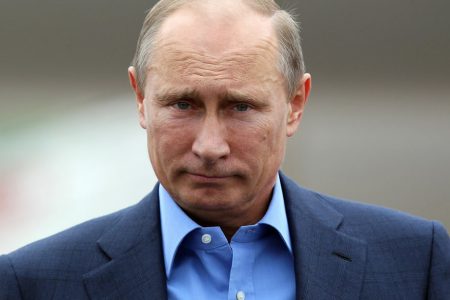2017 marks the hundredth anniversary of two transformative events. The U.S. entered World War I to make the world safe for democracy. And that November, Russia became the Soviet Union. In the ashes of the so-called Great War, the seeds for a second global conflict and a cold war were sown. In many ways, the 20th century reflected a bipolar or binary era casting one side against another.
First it was the Allies versus the Central Powers. Then it was the Allies, with the Soviet Union, against the Axis powers. Following World War II, a cold war between east and west lasted for four and a half decades. But years ending in seven have also had significant global and historical impact.
Financial crises occurred in 1907, 1987 and 2007. India was partitioned and East and West Pakistan were created in 1947; the Six Days War of 1967 enabled Israel to expand its borders into the Sinai, West Bank and Gaza. Other significant events transpired – Babe Ruth hit sixty home runs in 1927; Japan invaded China in 1937; and Sputnik was launched in 1957.
What will happen in 2017 in which Donald Trump became America’s 45th president and elections will determine much of the future in Europe as France and Germany go to the polls is, of course, unknowable. However this column will make a bold prediction. 2017 will be known as the year in which “No World Order” came to pass.
Much as World War I redefined the remainder of that century, other longstanding forces and factors have defined and are defining this No World Order. The diffusion of power and globalization, accelerated by the information revolution have eroded, if not begun the end of the Westphalian System of state-centric politics. Individuals and non-state actors have been empowered at the expense of traditional states.
The impact of Julian Assange, Edward Snowden and Osama bin Laden has been geostrategic. Al Qaeda and the Islamic State have been metastasized by a combination of failed governance, economic despair, dislocation and disparity and the fatal attraction of a perverted religious ideology combining desperation and fantasies over an afterlife. And non-governmental organizations from climate to cyber have diminished the power and authority of traditional states. All of this is occurring when the Internet, satellite television and social media proved direct access and linkage between and among the preponderance of earth’s some seven billion inhabitants.
In this environment, it comes as no surprise that the United States has lost a great deal of influence, authority and power. While its economy is stronger and larger than ever before, it now is a much smaller percentage of global GDP as India, China and many other states grow larger. While it maintains the finest military in the world, that force was unable to pacify Iraq and Afghanistan, prevent slaughter in Syria or stop Russia from its incursions into Ukraine. Nor has this power kept China from fortifying tiny islets in the various proximate seas nor deterred Kim Jung Un from building nuclear weapons.
In terms of advancing its values on human rights, civil liberties and democracy, the U.S. has not had much success. The assertion of populism and nationalism especially in Europe and the perception of growing influence of Russia under Vladimir Putin and China under Xi Jingping have undermined some of America’s moral authority. This is particularly true in the Middle East and Persian Gulf where American allies are worried about Washington’s commitments to the region.
The jury will be out for some time on the new Trump administration. However, “America First” and “Peace through Strength” – perhaps not bad as bumper stickers for a slice of the public, do not generate similar reactions outside our borders. Even Strength Through Peace might be a better slogan.
While slogans can be disastrous as policy and strategy, the United States might be wise to consider the following aims as central to re-establishing its role, authority, prestige and influence. The United States should be pursuing “peace and prosperity through partnerships.” We need to strengthen our military and geostrategic alliances. We also need to enhance economic ties. The Transpacific Partnership (TPP) and the Transatlantic Trade and Investment Partnership (TTIP) are vitally important in this regard.
Certainly, the nominees for Secretary of State and Defense clearly understand the criticality of partnerships. The test will be if the Trump administration choses that direction. If it does not, then the chances of 2017 becoming the start of No World Order are frighteningly high.




